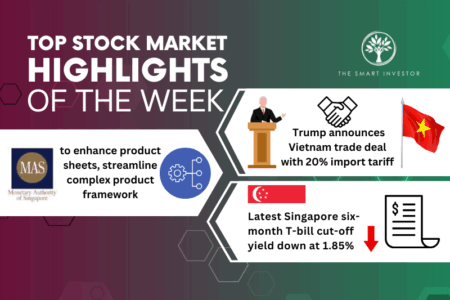Serial acquirers are companies that acquire smaller companies to grow and they can make for excellent investments. They use the cash flow produced by each acquisition to buy even more companies, repeating the process and compounding shareholder value.
There are many serial acquirers that have been hugely successful. The best-known of them is Warren Buffett’s Berkshire Hathaway (NYSE: BRK.B). But there are others who have been tremendous successes in their own right.
Markel Corp (NYSE: MKL), for example, is like a mini Berkshire. It is an insurance company at its core, but has used its profit and insurance float to acquire numerous companies and build a large public stock portfolio. Over the last 18 years, Markel’s share price has risen by 286%, or 7.8% compounded.
In the software space, Constellation Software (TSE: CSU) has made a name for itself by acquiring vertical market software (VMS) companies. Its targets are usually small but have fairly predictable and recurring streams of cash flow. Constellation Software’s stock price has compounded at 33% over the last 16 years. The total return for shareholders is even higher, as Constellation Software started paying a quarterly dividend a decade ago and has given out three bumper special dividends.
Another great example of a niche serial acquirer is Brown & Brown Inc (NYSE: BRO). Founded way back in 1939, Brown & Brown is an insurance brokerage company that packages and sells insurance products. The industry is highly fragmented but Brown & Brown has grown to become a company that generates billions in revenue each year. The company has done it by acquiring smaller insurance brokerage firms across the USA to build a large presence in the country. In the last 18 years, Brown & Brown’s stock price has grown by 439%, or 9.8% per year. In addition, Brown & Brown’s shareholders have also been receiving a growing dividend each year.
After reading through the success stories, here are some things I noticed that many of these successful serial acquirers have in common.
Buying companies at good valuations
Good returns on capital can be achieved if acquisitions are made at a reasonable valuation. Constellation Software is a great example of a company that makes acquisitions at really reasonable valuations.
The companies acquired by Constellation Software are often not fast-growing. This can be seen in Constellation Software’s single-digit organic growth in revenue; the low organic growth shows that Constellation Software does not really buy fast-growing businesses. But Constellation Software has still managed to generate high returns for its shareholders as it has historically been paying very low valuations for its acquisitions, which makes the returns on investment very attractive. It helps too that the companies acquired by Constellation Software tend to have businesses that are predictable and consistent.
Focusing on a niche
Constellation Software and Brown & Brown are two serial acquiries I mentioned above that focus on acquisitions within a particular field.
Judges Scientific (LON: JDG) is another company with a similarly focused acquisition strategy – it plays in the scientific instrument space. Specifically, Judges Scientific acquires companies that manufacture and sell specialised scientific instruments.
Since its IPO in 2004, Judges Scientific has acquired 20 companies and its share price has compounded at 27.9% per year. Its free cash flow has also grown from £0.3 million in 2005 to £14.7 million in 2021.
Serial acquirers that focus on a special niche have a key advantage over other acquirers as they could become the buyer of choice for sellers. This means they have a higher chance of successfully negotiating for good acquisition terms.
Letting acquired companies run autonomously
Berkshire Hathaway is probably the best known serial acquirer for letting its acquired companies run independently. The trust that Buffett places in the management teams of the companies he buys creates a mutually beneficial relationship.
This reputation as a good acquirer also means Berkshire is one of the companies that sellers want to sell to. Often times sellers will approach Berkshire themselves to see if a deal is possible.
Other than Berkshire, companies such as Constellation Software and Judges Scientific also have a reputation for allowing companies to run independently. Judges Scientific’s top leaders, for instance, may only have two meetings a year with the management teams of its acquired companies and they let them run almost completely autonomously.
Returning excess capital to shareholders
One of the common traits among all successful companies – be it a serial acquirer or not – is that their management teams emphasise shareholder value creation. This means effective use of capital.
When successful serial acquirers are unable to find suitable uses for capital, they are happy to return excess cash to shareholders. They do not let cash sit idly in the company’s bank accounts. Companies like Brown & Brown, Judges Scientific, and Constellation Software all pay dividends and rarely let excess capital build up unnecessarily on their balance sheets.
Final thoughts
Serial acquirers can be great investments. Those that are successful are usually great stalwarts of capital. While no single acquisition is the same, the thought process behind the acquisitions is repeatable. With a structured approach to acquisitions, these serial acquirers are able to repeatedly make good acquisitions to grow shareholder value. And when there are insufficient acquisition targets available, successful companies are not afraid to put their hands up and return excess capital to shareholders.
When you invest in a serial acquirer, you are not merely investing in a great business but in great managers and great processes that can keep compounding capital at extremely high rates of return for years to come.
Note: An earlier version of this article was published at The Good Investors, a personal blog run by our friends.
How do you decide if a growth stock is worth your money? There is no shortage of stock ideas today, but is a particular stock suitable for you? Find out more in our latest FREE report, How To Find The Best US Growth Stocks For Your Portfolio. Click HERE to download the report for free now!
Follow us on Facebook and Telegram for the latest investing news and analyses!
Disclosure: Jeremy Chia owns shares of Markel Corp.




